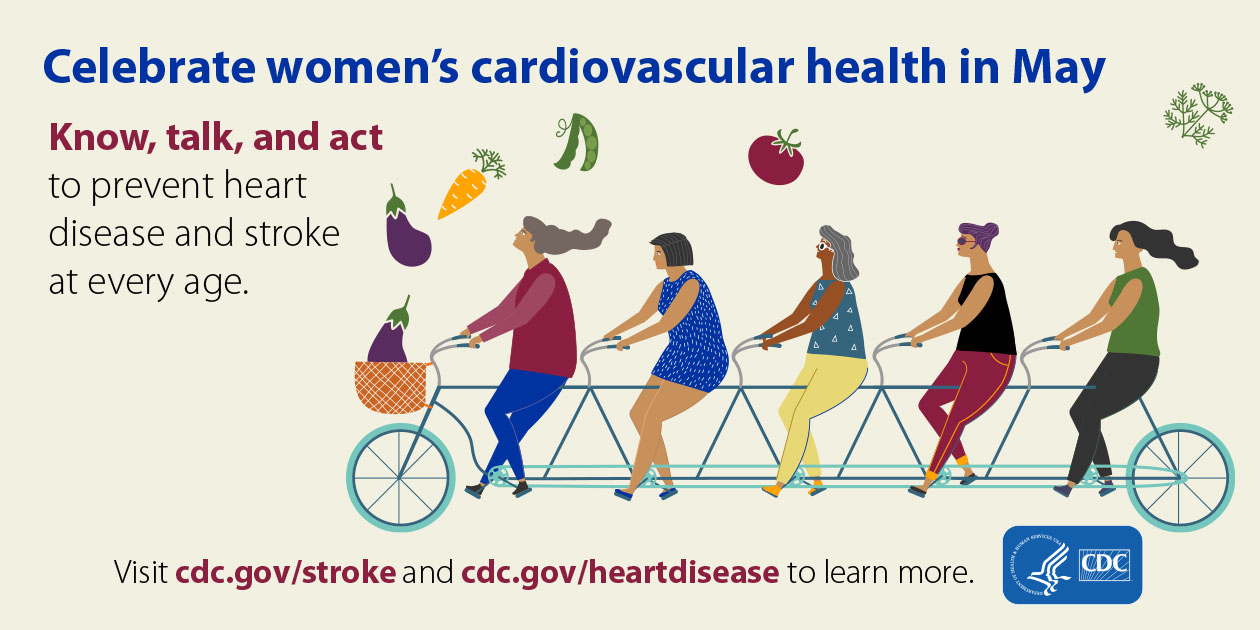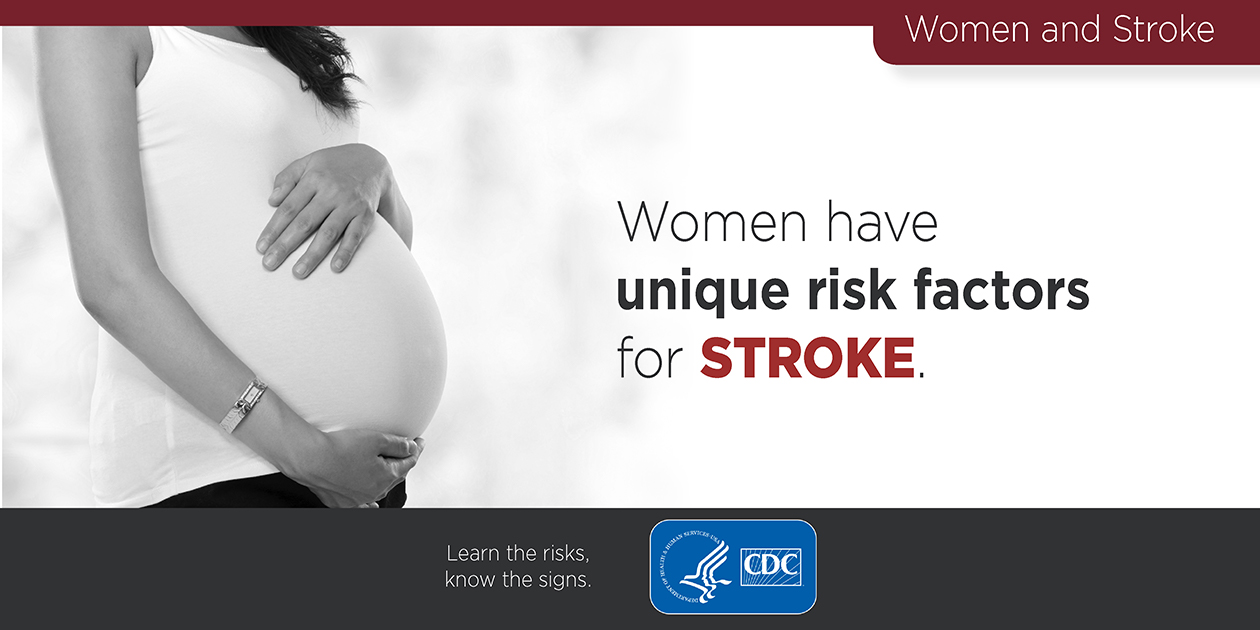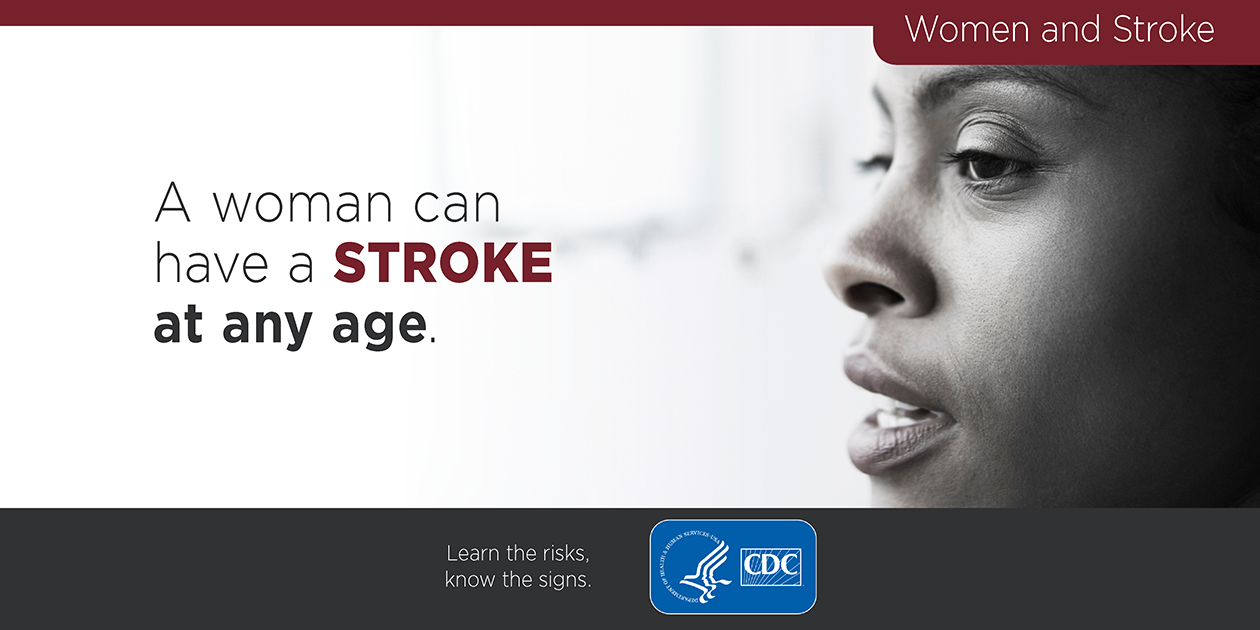Heart disease is the leading killer among women, but it does not have to be.
ATLANTA, May 13, 2019 /PRNewswire/ -- Heart disease is the leading killer among women, but it does not have to be. Women can live longer and heart healthier lives when they: know their risks and take actions to prevent and manage those risks, talk to their health care team about how to live a heart healthy life at every age, and take action by committing to making simple changes over time to live a healthier life.
Experience the interactive Multichannel News Release here: https://www.multivu.com/players/English/8538351-cdc-womens-heart-stroke-health-month/
Making healthy choices at every stage of life, such as establishing a routine for physical activity, eating a healthy diet, and making sure to stay on top of any health or medical conditions can help women stay heart healthy throughout their lifetimes. Conditions like high blood pressure, if left untreated, can have serious impacts over the course of a woman's life. High blood pressure is a strong risk factor for heart disease and stroke and having high blood pressure during pregnancy can increase a woman's risk for heart disease and stroke later in life.
It is important for women to know their heart attack symptoms can be different from men's, to not ignore their symptoms, and to seek medical attention immediately if they think they are experiencing any of those symptoms. Women often describe feeling chest or upper body pressure, nausea/stomach pain, jaw pain, fatigue, profuse sweating, and unusual or unexplained fatigue. If you experience any of these symptoms, seek immediate medical attention.
CDC has subject matter experts, a heart attack survivor, and a stroke survivor available for interviews. If you would like to speak to a subject matter expert or survivor about women's heart health please contact: media@cdc.gov, (404) 639-3286 (9:00 am – 6:00 pm EST).




![]() View original content:http://www.prnewswire.com/news-releases/womens-health-month-2019-know-talk-act-women-can-live-heart-healthy-at-every-age-300848890.html
View original content:http://www.prnewswire.com/news-releases/womens-health-month-2019-know-talk-act-women-can-live-heart-healthy-at-every-age-300848890.html
SOURCE Centers for Disease Control and Prevention, Division for Heart Disease and Stroke Prevention




